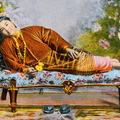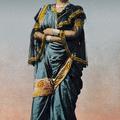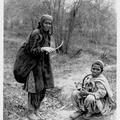Nautch Girl at her toilet
A slightly unusual portrait of two nautch girls in what seems like a room but is likely a studio given the painted column on the left. The bed is a prop, and the woman seated on the floor is apparently holding a mirror to the woman seated on the bed.

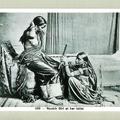
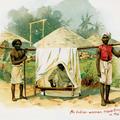
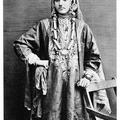
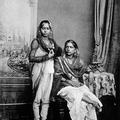
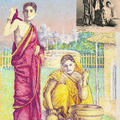
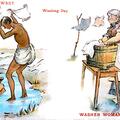
![[Zenana Carriage] [Zenana Carriage]](https://www.paperjewels.org/sites/default/files/styles/square_thumbnail/public/slides/carriage_0.jpg?itok=qY5XcnEW)
